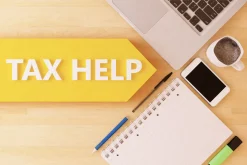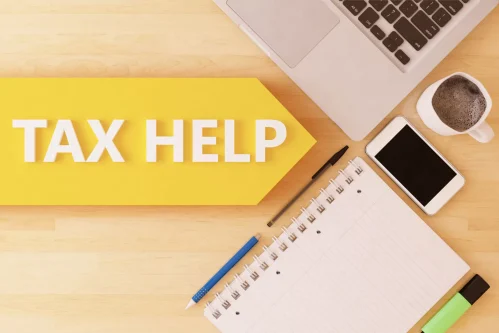
Owing tax debt to HMRC is particularly common if you are self employed or a company director. Can an IVA help?
Included in this article:
- When can tax be included in an IVA?
- What if you have equity in your property?
- Is it better to go bankrupt?
Want help to start an IVA?
Give us a call: 0800 011 4712 or complete the form below to speak to one of our experts
When can tax debt be included in an IVA?
Personal tax is treated in the same way as any other unsecured debt. As such it is possible to include it in an IVA. HMRC will be asked to agree to your IVA proposal in the same way as all your other creditors.
However they will only accept if certain criteria are met. You must ensure that all your returns are up to date (both any overdue and for most recent tax year).
An IVA is an ideal solution if you are self employed. However, you will also need to show that you can generate sufficient income to cover both your IVA and future tax liabilities.
You may owe HMRC money because of an overturned tax management scheme (such as an EBT) has been overturned. In these circumstances, you must be able to say you entered into the scheme in good faith. You should be able to do this if you took advice about the scheme from what you thought was a reputable source.
A tax credit overpayment can also be be included in an IVA. However HMRC may reject if they are already collecting the debt by reducing your ongoing benefits.
What if you have equity in your property?
It can be a significant challenge to agree an IVA with HMRC if you are a home owner. Where there is equity in your property, they will always demand the release of this as part of the agreement.
The standard IVA home equity release clause states that you have to try to release available equity in the 5th year of the arrangement. However HMRC will not accept this. They will normally require 100% of your share of any equity to be released by the end of the 2nd year.
HMRC will stipulate that if you are unable to come up with the required funds, you must be made bankrupt.
The money can be paid from any source. As such if a third party can help or you are planning to sell your property anyway, this may still be a viable option. But if not your property could be at significant risk and you may be unable to accept this demand.
If HMRC reject your IVA or make demands that you can’t accept, the agreement may still go ahead. However this would only be possible if HMRC can be out voted by your other creditors.
Is it better to deal with tax debt by going bankrupt?
When you have tax debt it is always sensible to review whether bankruptcy could be a viable alternative to an IVA. This is certainly the case if HMRC reject your IVA proposal. One of the significant advantages of going bankrupt is anything you owe to HMRC is written off and they can’t stop you using the solution.
But whether it is appropriate of course depends on your personal circumstances. If you are not a home owner or have little or no equity in your home it might be a good option. However you also need to consider the value of your car as this could also be at risk.
If you are a director of a limited company, going bankrupt would mean you would have to resign. You could still work as an employee of the company or close it and work as a sole trader. But if you don’t want to do this, an IVA may well be the better way for you to manage your tax debt.
Need further advice about dealing with tax debt. Give us a call (0800 011 4712) or complete the form below and we’ll call you.


